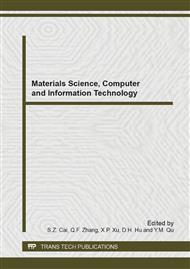p.1073
p.1077
p.1082
p.1088
p.1093
p.1097
p.1103
p.1107
p.1111
The Influence of Perceptual Load on Inhibition of Return
Abstract:
Inhibition of return (IOR) refers to a slower response to a target which appears at a previously attended location. We investigated whether perceptual load effects onset time of IOR in detection tasks. The results showed that the onset time of IOR was complex in different level of perceptual load. IOR effect was significant when perceptual load was low at 350ms, but the facilitation effect was significant at 850ms and 1350ms when perceptual load was high. The results indicated the onset time of IOR was influenced by perceptual load, indicating that perceptual load hinder the spatiotemporal correspondence between the cue and target integration.
Info:
Periodical:
Pages:
1093-1096
Citation:
Online since:
July 2014
Authors:
Price:
Сopyright:
© 2014 Trans Tech Publications Ltd. All Rights Reserved
Share:
Citation:


